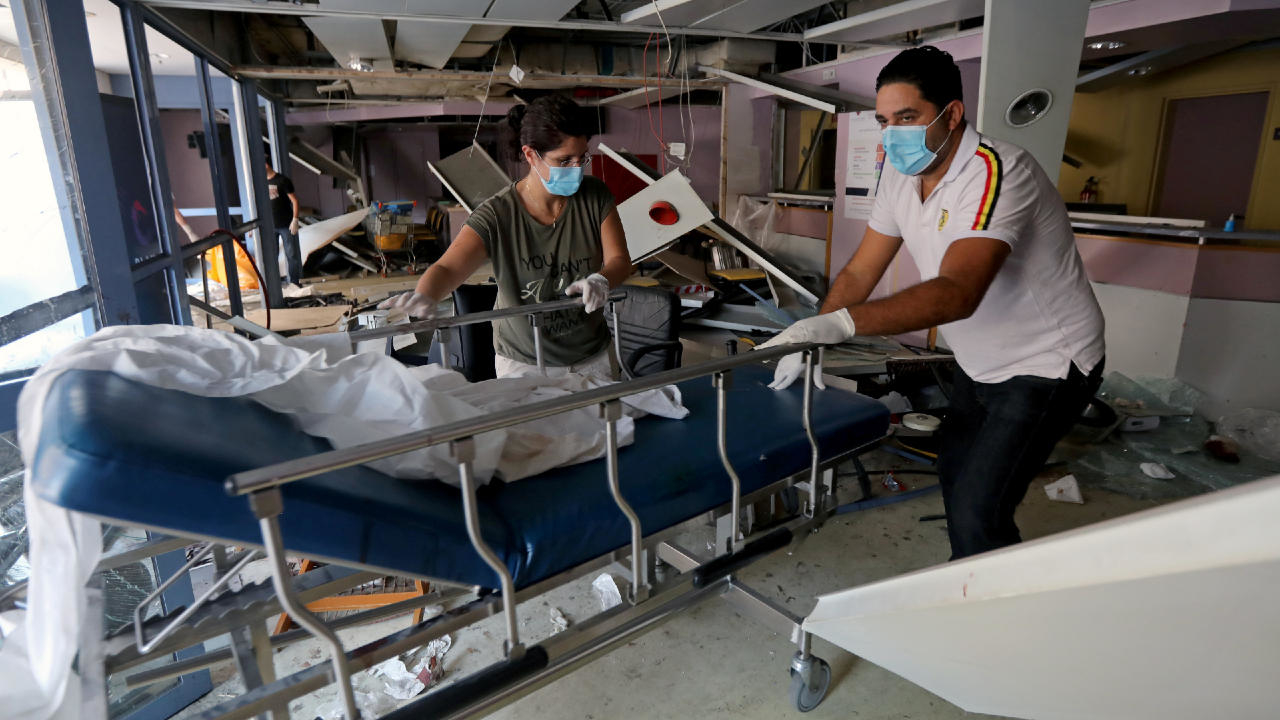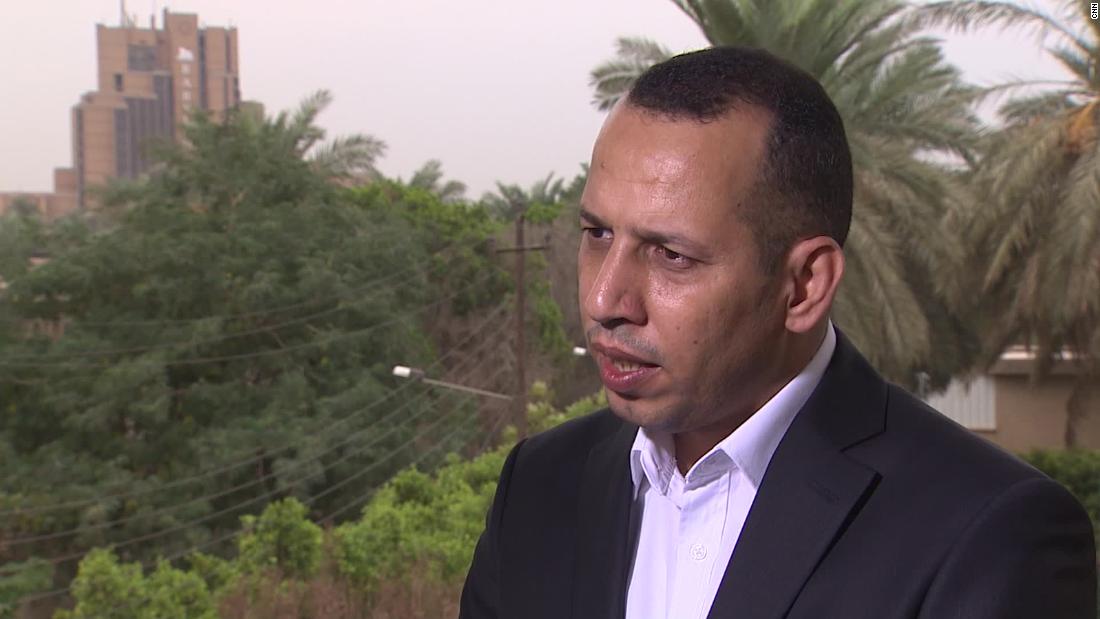Many of Beirut’s hospitals ‘non-functional’ following deadly blasts, WHO warns

The St. George Hospital where Soha Khalaf works as a nurse lies less than a mile from Beirut port. She had no time to recover from the enormous explosion that blasted over the city.
Advertising Read more
The ceiling crashed onto her head and tears streamed down her face, but she stuck to her task.
"People ran here yelling, 'Please, we need the ER.' But the ER was gone. And wherever I turned, I saw staff rushing down from other floors screaming," recalled Khalaf, assistant head nurse at the emergency room of Lebanon's oldest hospital.
Needles flew across the hall. Blood covered the floor. The lights went off.
Hundreds of people poured in from across the Lebanese capital after the Aug. 4 warehouse blast, which killed more than 170 people and demolished neighbourhoods.
"We just kept working, even as some of us bled, and we cried and cried."
With her colleagues, Khalaf stitched, intubated and bandaged victims on the pavement outside the ER. They stopped random cars to send patients to other hospitals, and relied on light from mobile phones as it got dark.
Across Beirut, doctors and nurses recounted a night of horror that shook up veteran medical workers in a city no stranger to explosions.
The aftermath of the blast has also raised fears for a healthcare system in tatters, already fighting a coronavirus outbreak which has seen 87 deaths and more than 7,100 cases since February.
Hospitals "non-functional"
More than half of Beirut healthcare facilities evaluated by the World Health Organisation are "non-functional" following last week's deadly port explosion, the agency said Wednesday.
Following an assessment of 55 clinics and health centres in the Lebanese capital, "we know now that just over 50 percent are non-functional", said WHO's regional emergency director Richard Brennan at a virtual press conference in Cairo.
Three major hospitals were non-functional and another three operating at well below normal capacity, he said.
Impact of financial crisis
Beirut's hospitals – which long attracted patients from around the region – have also been wrestling with the country's financial meltdown since late last year.
There are shortages in everything from dialysis equipment to syringes, with the state owing hospitals millions of dollars in arrears.
Now with hospitals turned into trauma centers and coronavirus cases still rising, some healthcare workers are asking: how can the system cope?
"The knockout"
On the night of the blast, hospitals used two months' worth of supplies, said Rona Halabi, spokeswoman for the International Committee of the Red Cross.
The explosion, which injured more than 6,000 people, knocked out three hospitals in Beirut and damaged 12 other facilities. Days later, pressure piled on thanks to hundreds of injuries at protests against Lebanon's leaders.
"These times are unparalleled to say the least," Halabi said, warning that the need for mental health care was also rising after scores of people suffered trauma.
"I have seen many explosions and a war. But I've never seen what I saw on AuRead More – Source
[contf]
[contfnew]

france24
[contfnewc]
[contfnewc]




